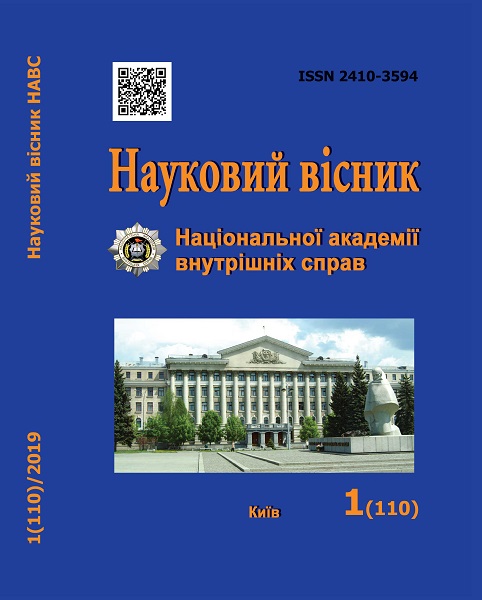Scientific Elite in the Conditions of Formation е-Governance (Philosophical and Legal Analyze)
Abstract
The purpose of the paper is to conduct a comprehensive analytical study of the concept «scientific elite» in the information era at the philosophical and legal level. To achieve this urgent, but not sufficiently studied problem the author analyzes the specifics and criteria of elitism in the conditions of the formation of e-governance. Attention is focused on determining the role of the scientific elite when introducing e-governance as an effective means of implementing the constitutional right of citizens to participate in government in the process of transforming the information society into a knowledge society. The purpose of the paper is to conduct a comprehensive analytical study of actual, but insufficiently researched, problems in determining the role of the scientific elite in the processes of origin, formation and establishment of the principles of electronic governance (governance) in the philosophical and legal dimension. The emphasis is on clarifying the peculiarities of one of the main components of the information society on the way to its transformation into a knowledge society – the introduction of e-governance as an effective means of implementing the constitutional right of citizens to participate in the management of state affairs. Today, stated in the article, despite the destruction of the
previous elite strata – the aristocracy and intelligentsia, it remains to be hoped that the new generation of the elite – the scientific – will eventually form and play in the society the positive role it claims to be. The scientific novelty of the work is that it is the first domestic comprehensive philosophical and legal analysis of the study of the role and place of the
scientific elite in the context of the formation of e-governance. Conclusions. According to the results of the research, the author concluded that in the conditions of e-governance (in the information society) to the elite cannot belong a person whose level of knowledge and intelligence does not meet the requirements of the time. That is, they do not meet the criteria of elitism put forward by our technogenic civilization. It is needed to consider that in the conditions of the development of a global information society the elite formation has the same global character as legal relationship (first of all in the public sphere). Along with the formation «global scientific elite», the reverse process occurs, id est «the elite globalization», which suggests that only highly qualified users of the new technologies can be integrated to the world information system and use by maximum its capabilities and advantages, and in this sense identify themselves belonging to the elite strata by the principle «who owns the information owns the world».
Keywords: elite; scientific elite; e-governance; information society; law; theory of elites; criteria of elitism; egalitarianism.
Downloads
Abstract views: 135 PDF Downloads: 109
- Authors reserve the right to authorship of their own work and transfer to the magazine the right of the first publication of this work under the terms of the Creative Commons Attribution License, which allows other persons to freely distribute published work with mandatory reference to authors of the original work and the first publication of an article in this magazine.
- Authors have the right to enter into separate additional agreements on non-exclusive dissemination of the work in the form in which it was published in the journal (for example, to post an article in the institution's repository or to publish as part of a monograph), provided that the link to the first publication of the work in this journal is maintained.
- The journal's policy allows and encourages the posting of articles by authors on the Internet (for example, in electronic storehouses of institutions or on personal websites), both before the submission of this manuscript to the editorial office and during its editorial processing, as this contributes to the creation of a productive scientific discussion and positively affects the efficiency and dynamics of citing the published work.




